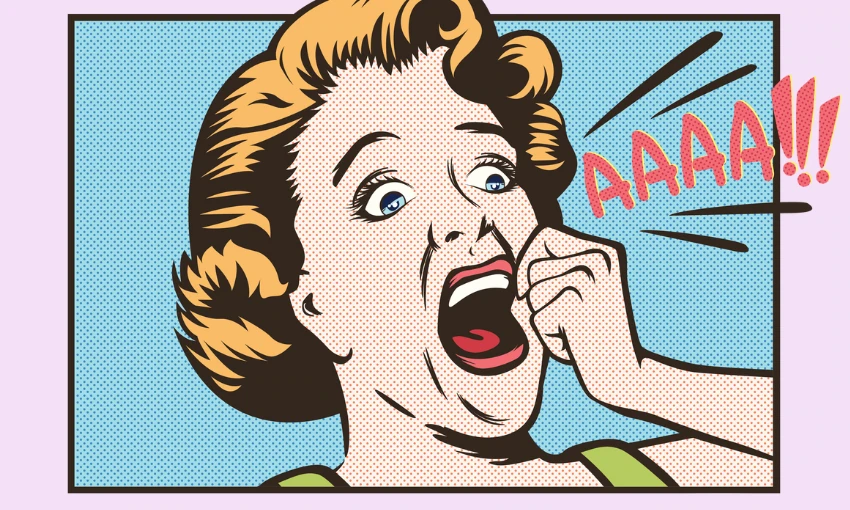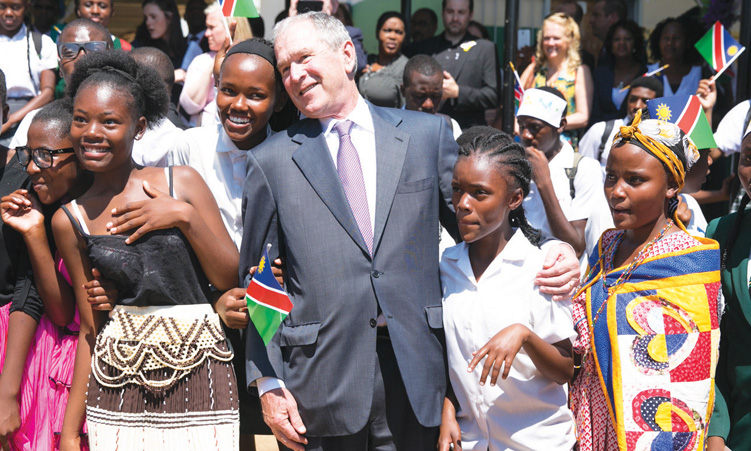By Alex Casey
Copyright thespinoff

Alex Casey finds many horrors lurking within a brand new gender attitudes survey. Here are some lowlights.
What’s all this then?
Buckle up folks. The National Council of Women of New Zealand, Te Kaunihera Wāhine o Aotearoa, has just released its latest Gender Attitudes survey for 2025. Beginning in 2017 and carried out every two years, the research looks to gauge New Zealanders’ attitudes towards gender, surveying a representative sample of 1,250 people 18 years and over. Over time, the study reveals how important New Zealanders believe gender equality is, our changing opinions about different genders, and how close we are to achieving gender equality.
But surely we have gender equality already, right?! Go the Black Ferns etc?!
I mean, nobody even knows the Black Ferns are playing in a World Cup right now. And New Zealand actually dropped in the global gender equality rankings this year, with women’s economic participation dipping to a rate last seen in 2007, and gender parity in ministerial positions dropping from 81.8% in 2023 to 53.8% in 2025. That’s before we even get into our devastating sexual violence statistics, or the fact that we have among the worst family violence rates in the developed world. But wait, there’s more! Aotearoa is in the midst of a femicide crisis, while one in five trans and non-binary people have been threatened with physical violence in the last four years, are twice as likely to suffer depression and anxiety than those outside of the gender-diverse community, and are more likely to earn less or be unemployed in Aotearoa.
Ah crap, this isn’t going to be a fun article, is it?
The best I can do for you is start with some good-ish news: 79% of New Zealanders agree that gender equality in Aotearoa New Zealand is a fundamental right, a statistic that has stayed precisely the same every time the survey has been done since 2017. On the one hand – yay! No fewer people in Aotearoa believe that gender equality is a fundamental right. On the other hand – boo! No more people in Aotearoa believe that gender equality is a fundamental right! Also unsettling is the statistic that 21% of New Zealanders think gender equality has actually gone too far, with one in three young men aged 18-34 agreeing with the sentiment.
Woah, wait a minute – what is going on with young men?
I’m no statistician, but I can tell you that young men (18-34) easily had the worst vibes of any demographic surveyed. As well as holding the strongest agreement with the belief that gender equality had gone too far (33%), they were also less likely to agree that gender equality is a fundamental right (67% compared with 78% of women), and less likely to agree that sexism is still a significant issue here (55% compared with 64% of women). Interestingly, men in general had a much more optimistic view of our progress when it comes to gender equality, with 52% agreeing that gender equality had already been achieved (compared with 41% of women).
A bleak start. What about our expectations around gender roles?
When it came to running a household, most people (84%) thought that childcare was an appropriate chore for all genders, closely followed by bringing in the household income (81%), cooking meals (80%) and grocery shopping (79%). Where things get a little more interesting is where there is less consensus. More male than female respondents thought it was more appropriate for men and boys to mow the lawn, put the rubbish out, fix the internet problems and drive on family outings rather than, say, clean the bathroom.
In terms of jobs, the strongest consensus (91% agreeing) was that being a family doctor is suitable for all genders, followed by a teacher (89%) and being in a leadership role (87%). The job at the other end of the table with the biggest perceived gender skew was builder, with only 55% of respondents believing it was an appropriate job for all genders. And although everyone was all for gender parity when it came to family doctors, it was a different story for nurses – 37% of men and 21% of women believed it was a role better suited to women than men.
Very cool that a 25-year-old joke from Meet the Parents persists!
Very. And on the topic of fragile masculinity, the survey also revealed that the most significant difference in agreement between men and women was around whether it was OK for boys to play with dolls. Less than half of male respondents (46%) thought it was acceptable for boys to play with dolls, compared with 66% of female respondents. The survey did not go into further detail about the definition of a doll, and whether or not it included GI Joes, Transformers, or Chucky from Chucky.
But wait, there’s more fragility to come. Respondents were also asked how comfortable they would be around sexually and gender-diverse people. Across the board in every single possible situation, men expressed greater discomfort than women. For example, 78% of women were comfortable with gay men at work, compared with 72% of male respondents. In all potential situations, female respondents were more likely than male respondents to state they would be comfortable around trans people.
Cool cool cool, do you have any more horrors to share?
Sorry, but we haven’t even talked about our changing views on sexual violence yet. People were asked about the extent to which they agreed with different rape myths, such as “if someone is raped when they’re drunk, they’re at least partly responsible for what happens” and “you can’t really call it rape if someone doesn’t physically fight back”. Men were more likely to agree with every statement than women, for example 40% of men agreed that false rape accusations are common compared with 27% of women.
Gender divide aside, the rape myth that has gained the most traction over time is “rape happens when a man’s sex drive is out of control”, with agreement increasing from 25% in 2017 to 36% in 2025. Otherwise, 17% of New Zealanders still think that if someone is raped when they’re drunk they’re at least partly responsible for it, and 11% of New Zealanders think that if someone doesn’t physically fight back you can’t call it rape.
Please, I’m begging, do you have any good news at all?
Sorry, I’m not quite done with gender violence yet. The number of people who agree that “hitting out is an understandable response for a man when his wife or partner tries to end a relationship” has nearly doubled from 8% in 2017 to 14% in 2025. And then there’s reproductive rights. While the majority of people still agree that contraception is the responsibility of both men and women (83%) and that women have the right to choose abortion (73%), the support for each statement has significantly decreased, by 4% and 5% respectively, since the last survey in 2023.
I’m bleaked out. What do the experts have to say about this?
NCWNZ president Suzanne Manning said that while the survey shows New Zealanders value gender equality, small parts of the population are reversing our progress. “If we believe gender equality has been achieved, we’re unlikely to prioritise actions that must be sustained to make true progress,” she said. “This is made worse when our country’s leaders make crucial decisions on pay equity, women’s health, education and climate policy that disproportionately affect women and which set us back decades on the progress we’ve already made.”
Manning added that these government decisions also send a clear message to New Zealanders. “When our government signals it will endorse actions and legislation that devalue women’s contributions to society, gender equality is going to go backwards,” she said. “We need our leaders to know that they must work harder to deliver what is important to the majority of the people they represent.” And while the survey suggests that most New Zealanders want a more equal society, there are also some concerning views on the rise.
“The findings underscore an urgent need to re-engage all Kiwis – and young people in particular – in the conversation about equality,” Manning said. “We need to ensure that their voices are heard about the country they want to live in.”



